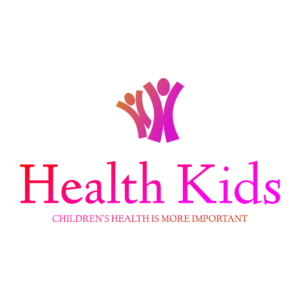3 major issues with study on monthly checks to support kids’ health

The New York Times recently covered a new study, Baby’s First Years, which found that monthly cash transfers given to families in poverty did little to improve the children’s well-being.
The study — and coverage of it — is highly misleading. And at a time when the federal government is clawing back aid intended to help kids, it’s irresponsible.
Decades of scientific study have made it clear that children need basic resources for healthy development. The main finding from the Baby’s First Years study is that a small income infusion alone — in the absence of any psychosocial support, education, and guidance for caregivers — does not result in tangible changes in behavioral and brain outcomes detectable in early childhood. The study looked at mothers’ reports of overall child health, language development, socioemotional development, and developmental delays, as well as the child’s body mass index, and found no improvement.
However, as a psychiatrist and a psychologist who research early childhood development, we see three major issues with the design of this study that make these findings misleading.
First, the amount of income supplement provided to mothers was small: only $333 per month. That’s not enough to bring most families above the poverty line, meaning they were likely still experiencing housing instability, food insecurity, and all the other stressors that come with not having sufficient basic financial resources. We have previously argued that for young children there is a “biological poverty line” necessary to support physical and mental health that is well above the current poverty line. Many of the children in the Baby’s First Years study continued to live below the federal poverty line, and definitely below a biological poverty line, which we estimate to be three to four times the poverty line.
Second, the study did not provide any support or education to families outside of the small increase in income. Parenting is one of the most challenging jobs out there, and caregivers need considerable support and guidance, something that was more available in the past when extended families often lived together. Caregivers facing social adversity or low-resource environments are forced to undertake the extremely difficult task of caring for a young child against strong headwinds, often with little guidance.
Third, the intervention in Baby’s First Years did not start until after children were born. Evidence increasingly suggests that the effects of low resources and related adversity begin to take effect in utero, suggesting that the intervention in Baby’s First Years may have started too late.
For these reasons, we feel that income infusion sufficient to raise families above the poverty line (or even further above the “biological poverty line”), the inclusion of social support and guidance for parenting, and interventions that start in pregnancy are basic requirements to show early positive impacts on child brain and behavioral outcomes.
Providing such resources is within the reach of any moderate income country, let alone a wealthy one like the U.S.
Scientific studies now clearly and convincingly demonstrate that the environment, both physical and psychosocial, has a profound impact on the health and development of children. Similar to a plant’s need for sunlight, water, and nutrient-rich soil, developing children require basic support and protection for healthy growth. That requires financial resources.
And it starts before a child is even born. These environmental effects on health have particularly powerful impacts on the developing fetus in utero, a period when the physical and social exposures of the pregnant mother powerfully impact growing fetal organ systems, particularly the brain. For this reason we argue that these financial and psychosocial supports must start in pregnancy.
Environmental stressors constitute what health researchers have called the “exposome,” an area of increased focus and importance in understanding health and disease. Two key components of the exposome with direct impacts on health and development are “exposures,” defined as the physical and chemical contaminants that a child takes in from the environment (such as lead, pollution, etc.), and “experiences,” which are defined by the psychosocial environment with which the child interacts.
Both exposures and experiences powerfully impact health risk through their effects on developing organ systems in children. Furthermore, both are modifiable factors that can be targeted for the public good in a society that values and prioritizes the health and well-being of children. But that requires both financial resources and psychosocial support and education.
These principles are particularly important now, as America’s children face increasing threats to their health and well-being while programs designed to protect them are eliminated. Government cuts have hit food banks, programs that support working caregivers, and educational programs like Head Start while also reducing access to health insurance. These social supports are critical for the health and well-being of young children and have well-established long-term cost-effectiveness, but are currently being drastically scaled back, or in some cases, are set for elimination. Adding to this threat to federal infrastructure is the closing and defunding of numerous non-governmental organizations designed to protect struggling children.
The lack of findings thus far in the Baby’s First Years study should not be used to justify actions that will further hurt children’s developmental health. Physical and psychosocial stressors hurt all developing children across the socioeconomic, demographic (rural and urban), and political spectrums. Removal of these protections and critical foundational supports will result in a lower quality of life, increased risk of disease, poorer educational outcomes, a less well-prepared and functioning workforce, and shortened lifespans.
Scientists and public health workers possess the scientific knowledge and tools to prevent America’s children from being subjected to these perils, and some of these tools have been in use in our country for decades. In the richest society in the world, basic protections for the health and thriving of children in the first years of life require resources that amount to a tiny fraction of the federal budget.
Joan Luby, M.D., is an infant/preschool psychiatrist clinician researcher at Washington University School of Medicine who focuses on the impact of the psychosocial environment on early brain and behavioral development. Deanna Barch, Ph.D., is a clinical scientist researcher at Washington University in St. Louis who has focused on understanding how early environments impact brain, cognitive, and emotional development across the lifespan.
link





